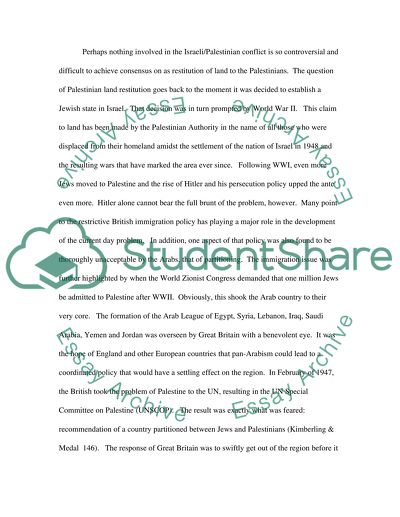Cite this document
(“Israel Settlements and the Issue of Palestinian Restitution Essay”, n.d.)
Retrieved from https://studentshare.org/politics/1500388-israel-settlements-and-the-issue-of-palestinian-restitution
Retrieved from https://studentshare.org/politics/1500388-israel-settlements-and-the-issue-of-palestinian-restitution
(Israel Settlements and the Issue of Palestinian Restitution Essay)
https://studentshare.org/politics/1500388-israel-settlements-and-the-issue-of-palestinian-restitution.
https://studentshare.org/politics/1500388-israel-settlements-and-the-issue-of-palestinian-restitution.
“Israel Settlements and the Issue of Palestinian Restitution Essay”, n.d. https://studentshare.org/politics/1500388-israel-settlements-and-the-issue-of-palestinian-restitution.


